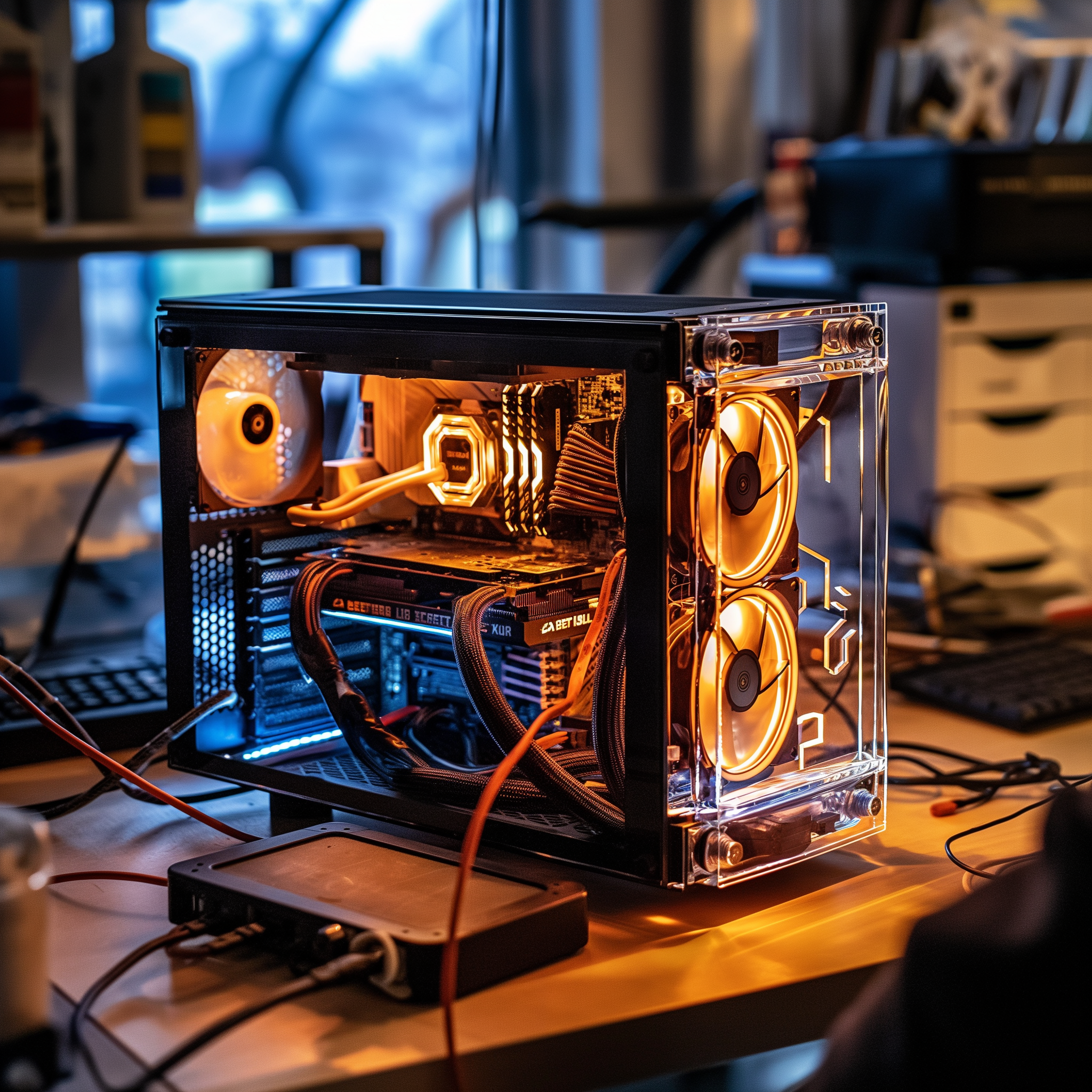As we step into 2024, many are considering whether to opt for a Do-It-Yourself (DIY) NAS setup or a turnkey solution from established brands like Synology or QNAP. This decision can be complex, with a range of factors to consider including cost, expertise required, and the specific needs of your server. In this blog post, we’ll dive into the debate between DIY and turnkey NAS solutions, helping you decide which might be the best fit for your needs.
Cost Comparison: DIY vs. Turnkey
One of the most significant advantages of a DIY NAS is the cost. When you opt for DIY, you’re primarily paying for hardware, avoiding the software costs that often inflate the price of turnkey solutions. However, the lower upfront cost of DIY solutions comes with its own set of challenges, particularly for beginners. Without the necessary technical knowledge, setting up and maintaining a DIY NAS can be daunting and time-consuming. In contrast, turnkey solutions offer a more straightforward setup process and include support and warranty, potentially saving a lot of hassle and time.
The Time Factor
Time is a critical factor in the DIY vs. turnkey debate. Setting up a DIY NAS requires not only technical skill but also time to manage and maintain the system. Turnkey solutions, on the other hand, are designed for convenience, coming pre-configured with software and often accompanied by customer support that can save you significant time and effort.
Flexibility and Freedom
DIY solutions offer unparalleled flexibility. Users can choose from a variety of operating systems and software, tailoring the setup to their specific needs without being locked into a particular ecosystem. This freedom allows for a more customizable and potentially more potent server configuration. However, this also means that users must manage updates, security, and compatibility issues themselves, which can be a significant drawback for those without technical expertise.
Hardware and Software Limitations
Turnkey solutions often come with hardware and software restrictions. For instance, certain NAS models may only support specific types of drives or memory upgrades, which can limit your ability to upgrade or modify your server over time. DIY systems generally offer more freedom to use any compatible hardware components, which can be more cost-effective and allow for a broader range of upgrades.
Long-Term Considerations: Support and Sustainability
One of the benefits of turnkey solutions is the comprehensive support offered by manufacturers. This can be invaluable for troubleshooting and ensuring long-term reliability. Additionally, turnkey NAS systems are often more straightforward to set up and maintain, which can be crucial for businesses or individuals who prioritize stability and support over customization.
On the sustainability front, DIY systems often allow for greater reuse and recycling of old components, aligning with more environmentally friendly practices. They also tend to have a longer lifespan in terms of support from the community and developers, even if manufacturer support fades.
Conclusion: Which Should You Choose?
The choice between DIY and turnkey NAS solutions depends significantly on your specific needs and skills. If you value flexibility, customization, and are comfortable with potential challenges in setup and maintenance, a DIY NAS could be the right choice. However, if you prefer a hassle-free setup, with reliable support and less need for technical management, a turnkey solution might be more suitable.
Before making a decision, consider how much your time is worth, your technical expertise, and what you primarily need your NAS for. Each option has its merits and can serve different users effectively, depending on their circumstances and requirements. Whatever you choose, ensure it aligns with your long-term data management and storage goals.



